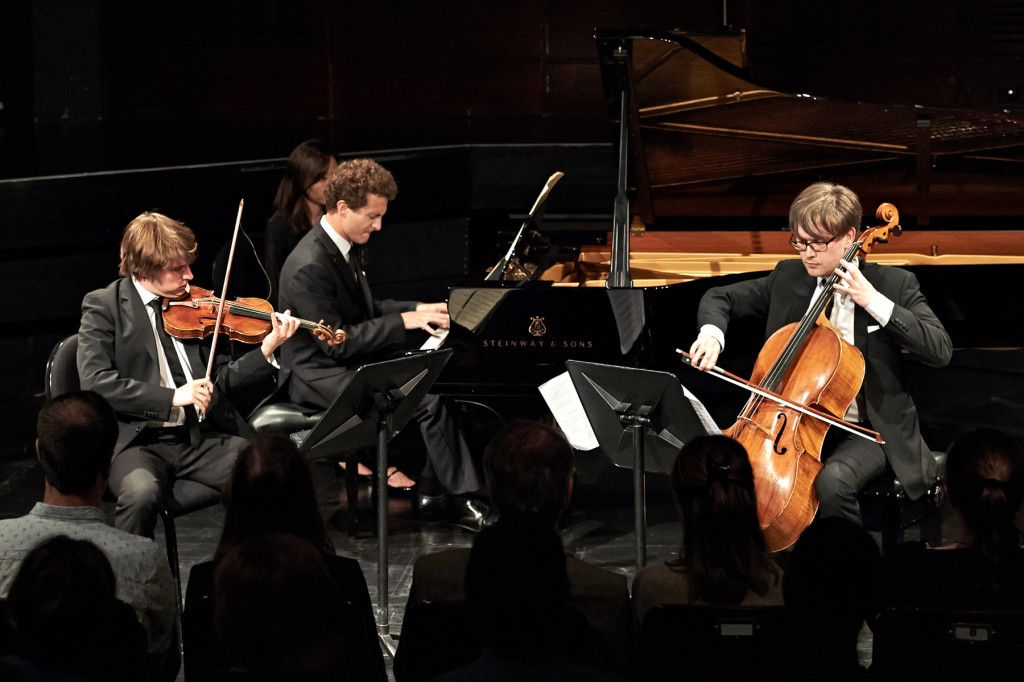We have a real opportunity in the north east to set examples and take risks. Each time I come “back home” (I grew up in Gateshead but now live between London and Berlin) I sense an openness to the new, a willingness to explore and a hunger to change perceptions of the region. This combination is unique and a perfect environment to push boundaries.
Back in 2009 when I started Northern Chords – an annual classical music festival – these thoughts didn’t cross my mind. I just wanted to perform beautiful music. But now, after speaking to audience members who had never ever been to a concert before and hearing what a life-changing experience it was for them, I realise that there is a real possibility here. The north east could grow into an area ripe with people who realise that the power to change society often lies in the things they create.
The same message came through as I was reading applications to our new project, 100 Faces. Many applicants wrote of their frustration when the region gets bad press and reputation (Geordie Shore did not help). But 100 Faces offers people the opportunity to create and perform a piece of work in the region that tells a different story.
The piece will be performed by 100 people from across the community of Gateshead; from inmate to footballer, from banker to refuse collector, from entrepreneur to long-term unemployed, from local-born to immigrant, from young child to the most elderly. The project will represent, in musical form, an inclusive cross-section of the borough.
The work that we’ve chosen to perform is György Ligeti’s Symphony for 100 Metronomes. It has never been performed in the region. Why Ligeti’s Symphony? Because it reduces music to one of its simplest building blocks: pulse – simpler even than rhythm. Composed in 1962, it is the last of the composer’s “event pieces” and enjoys the rarity and fame of other imaginative and unique projects such as John Cage’s (silent) 4’33”.
At the opening concert of the next Northern Chords Festival on the 24th May, the 100 performers will play the piece by each setting off one clockwork metronome. Each metronome is pre-set to a different speed, so they all run down at different rates and times – ending with one solitary survivor, poignantly breathing its last!
My dream is this performance will demonstrate, as simply as possible, that music is a language that has no prejudice, that it makes no distinctions between people’s religious beliefs, nor their race or their background. It is a unique universal language, bringing together 100 people from Gateshead who perhaps would otherwise never meet otherwise.
To strengthen the message, and to leave a legacy beyond the concert, the musical performance will be accompanies by an exhibition of portrait photography by award-winning Estonian photographer Kaupo Kikkas. There will be one portrait of each performer – a photographic cross-section of a whole community.
The impact of music on communities is the reason why it is desperately important that we fight the cuts to arts funding that are taking place, most notably from Newcastle City Council in recent years, but also on a national scale. These cuts demonstrate a major misunderstanding of how central the arts, not just music, are to the community.
If you haven’t been to a classical concert in the region, I challenge you to take the risk and come along, prepared to be surprised, delighted and challenged. To feel the collective awe or meditative moments of reflection as collective member of the audience. To experience the closeness between one human and another that it encourages. A constant reminder that we are all equal.
Jonathan Bloxham is a conductor, cellist and artistic director of Northern Chords Festival which takes place at the end of May. You can follow him on Twitter.
Do you share his anger at arts funding cuts in the north east? Tell us in the comments section below – by clicking on the little plus sign.
(Views expressed on our website and in our magazines and emails are not necessarily endorsed by Northern Correspondent.)

